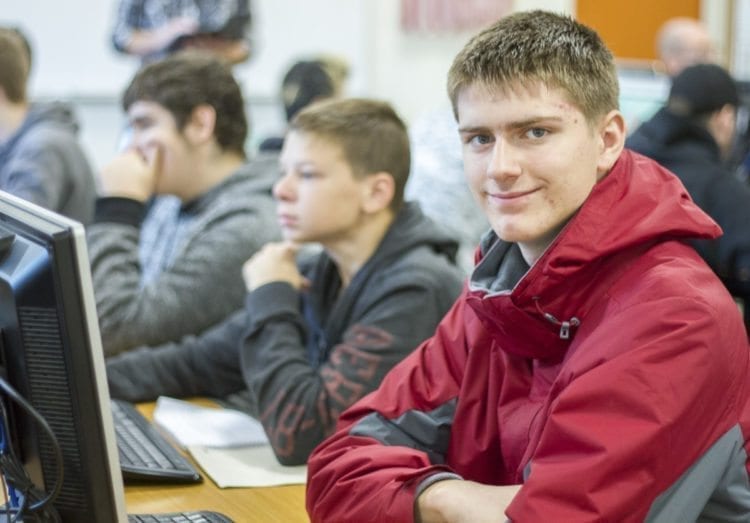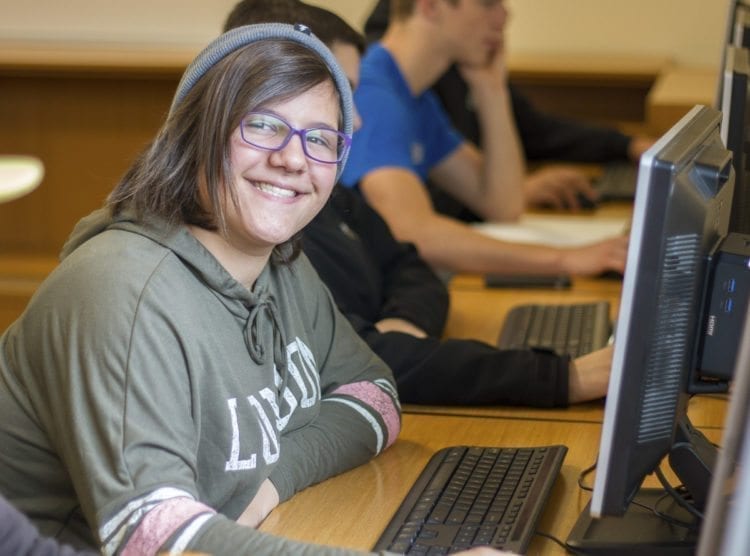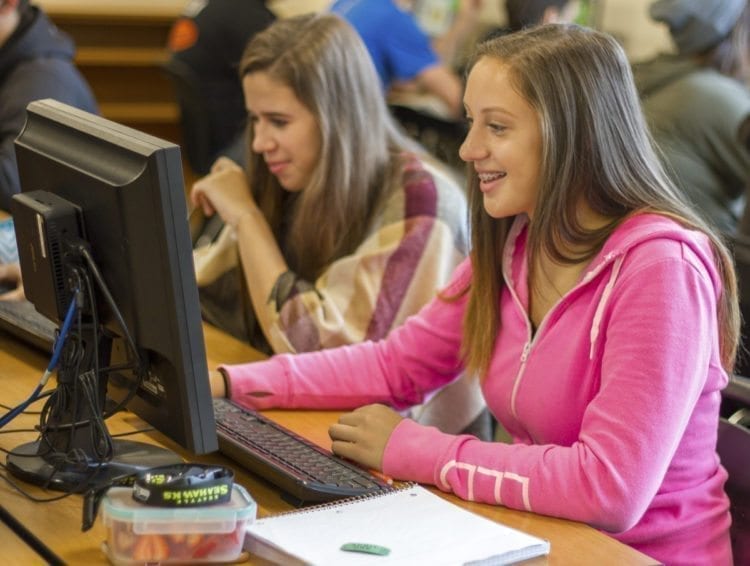Effort is to help teach students how to use the internet safely
WOODLAND — Woodland’s students will learn how to use the Internet safely and responsibly in order to prepare for a lifetime of living and working online during Digital Citizenship Week from March 26-30.

Each school will teach age-appropriate curriculum specially designed to help students learn how to use the Internet and maintain their digital identity.
Schools throughout the United States started introducing Digital Citizenship Week recently to bring the concept of Digital Citizenship to the forefront of students’ minds.

“Digital Citizenship is the ability to think critically, behave safely, and participate responsibly in the digital world,” explained Candice Shepherd, teacher librarian at Woodland Middle School coordinating the district’s curriculum for the week. “Just as we strive to teach students to be safe, respectful, and responsible in the physical world, we need to teach them what it means to be safe, respectful, and responsible in the digital world.”
Topics taught throughout Woodland’s schools during the week include:
- What is Digital Citizenship?
- What is a “digital footprint” and how can students practice safe digital use?
- Cyberbullying and Digital Drama
- Fake News, Evaluating Sources, and Giving Credit
With younger children spending more and more time in front of screens including phones, tablets, computers, and television, scientific studies investigate the effects this amount of screen time has on the developing human brain.
“Children and adults alike often don’t think about the impact increased screen usage has on themselves and others,” said Shepherd. “People often think about the physical effects due to the lack of physical activity inherent with sitting in front of a screen for hours, but research shows the negative effects go far beyond that including social and mental health issues as well as physical symptoms ranging from neck and thumb pain to vision problems, sleep deprivation, depression, increased aggression, and even addiction.”

Beyond the physical and mental effects, real threats occupy the digital world just as they occupy the physical world. Parents should consider what children are doing in the digital world: What sites are they visiting and what are they posting? Who are they interacting with?
“Parents need to talk openly and honestly with their children about the effects of too much screen time as well as the other risks posed by building an online identity, and then work together to develop guidelines for appropriate technology use,” said Shepherd. “However, simply establishing ground rules without explaining the reasoning behind those rules or denying kids to have a voice in the process can backfire — kids need to be educated to why online rules are so important.”
The key to practicing digital citizenship focuses on the proper use of technology, not getting rid of technology.
“Technology and social media are tools that will simply be a part of our children’s everyday lives — they are not the enemy or the problem,” explained Leslie Mohlman, community, family, student resource coordinator for Woodland Public Schools. “Whether parents have a no-tech, low-tech, or high-tech home, both children and parents need to be aware of the topics that surround digital citizenship.”
Digital citizenship starts with parents having open conversations with their kids.
“Parents need their children to come tell them if the child sees or does something inappropriate online, but only 1 out of 10 children talk to their parents when incidents occur,” said Mohlman. “We can change this statistic in Woodland by having ‘tech talk’ in our everyday conversations with our children.”
Educational experts emphasize the importance of parental involvement.
“We can’t run an effective campaign on Digital Citizenship only during the school day; parents and the community must be involved,” said Mohlman. “Woodland Public Schools offers video screenings, workshops and other opportunities to help parents stay informed about their roles in shaping the positive digital reputation of their children and to give parents the tools they need so they can keep up with the rapid changes in today’s technological world.”
Woodland Public Schools offers Screens and Teens Workshops, free one-hour classes designed to help parents navigate digital issues such as how the Internet can create a false sense of popularity in children and the risks facing privacy, cyberbullying, legal actions, and possible impacts on children’s future. Parents can register for upcoming workshops and learn more by visiting the Parent Education section on Woodland Public Schools’ website: www.woodlandschools.org.
To help families who cannot afford their own computers for their middle or high school student, Woodland Public Schools received a grant to create Technology for Home, a program which loans laptops to families in need.
“Families will have the opportunity to borrow a laptop computer for the entire school year,” said Mohlman. “We will start the program with the new school year beginning Fall 2018.”
Families interested in applying for Technology for Home can contact Leslie Mohlman by phone at (360) 841-2718 or by email at mohlmanl@woodlandschools.org.
For more resources to help parents talk with their children about digital technology and new media, parents can visit www.commonsensemedia.org a free website featuring resources to help parents talk with their children about a variety of topics including new television shows and movies with controversial subjects as well as guidelines for Internet and other digital technology.
For questions or comments about Digital Citizenship Week, contact Candice Shepherd via email at shepherc@woodlandschools.org or by telephone at (360) 841-2987.
Information provided by Woodland Public Schools.




